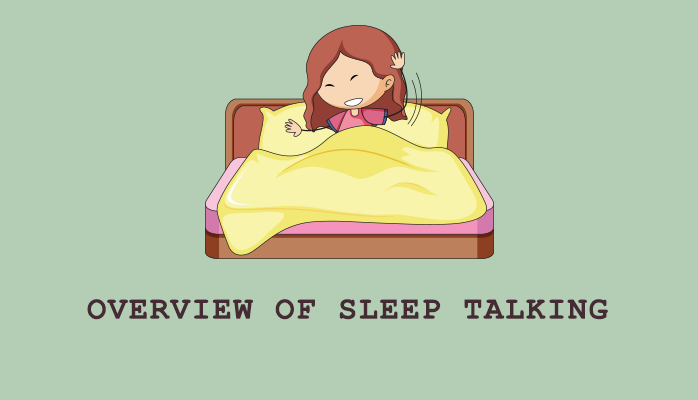What is Somniloquy, or sleep talking?
Does your bed partner tell you that you whisper, laugh, mumble, or even outright talk in your sleep? Or does your child shout or give long, incomprehensible speeches? This is referred to as sleep talking, or somniloquy.
Unlike many other sleep disorders, which can have serious medical consequences, somniloquy is a parasomnia that is often light hearted. Witnessing someone sleep talking can be funny, charming, startling, vulgar, or strange. But fortunately, there are almost never any medical consequences to sleep talking, other than maybe keeping a bed partner awake.
Sleep talking episodes can last up to 30 seconds, but usually not beyond that [SleepFoundation]. People who sleep talk won’t remember there midnight diatribes the next morning.
Sleep talking can be:
- Mild – sleep talking less than once per week
- Moderate- sleep talking occurs every week but not every night
- Severe – sleep talking occurs nearly every night
What Does Sleep Talking Look Like?
Unlike movies, where people give long speeches and reveal deep, hidden secrets, sleep talking in real life doesn’t happen that way. Usually, sleep talking includes:
- Periodic laughter or giggling, as if the sleep talker is actually awake
- Mumbling noises
- Whispers
- Shouts
- Outbursts
- Incomprehensible snippets of speech
- Longer speeches
People who sleep talk may also respond to your questions as if they are awake, but they will still be asleep. The more comprehensible speech can be:
- Nonsensical
- Graphic
- R rated
- Vulgar
- Pedestrian
- Eloquent
It all depends upon the person and the night.
Causes of Sleep Talking
Sleep talking has no specific cause in general, and may happen in different people for different reasons, such as:
- Genetics
- Occurring with nightmares or night terrors
- Stress, anxiety, or depression
- Alcohol
- Sleep apnea
- REM sleep behavior disorder
Somniloquy Statistics
Sleep talking is very common. Here are some statistics [WebMD]:
- About half of children ages 3 to 10 talk in their sleep
- About 1/20 adults talk in their sleep
- There is no apparent difference between the sexes in sleep talking
- It may be genetic, as sleep talking often runs in families
Given these statistics, most people grow out of sleep talking as adults.
Does Sleep Talking Need Treatment
Treatment is usually not necessary for sleep talking, as it’s usually harmless. However, if there are underlying reasons for the sleep talking that negatively impact health, those reasons should be addressed.
If sleep talking is particularly disruptive for a bed partner, some measures can be taken to reduce the likelihood of sleep talking:
- Getting enough sleep
- Having a regular sleep schedule
- Refraining from alcohol
- Reducing stress
Having white noise or using earplugs can be useful ways to keep a sleep partner from waking up. If you have concerns about your sleep talking, or if your sleep talking is severe and chronic, please reach out to one of our sleep specialists:


